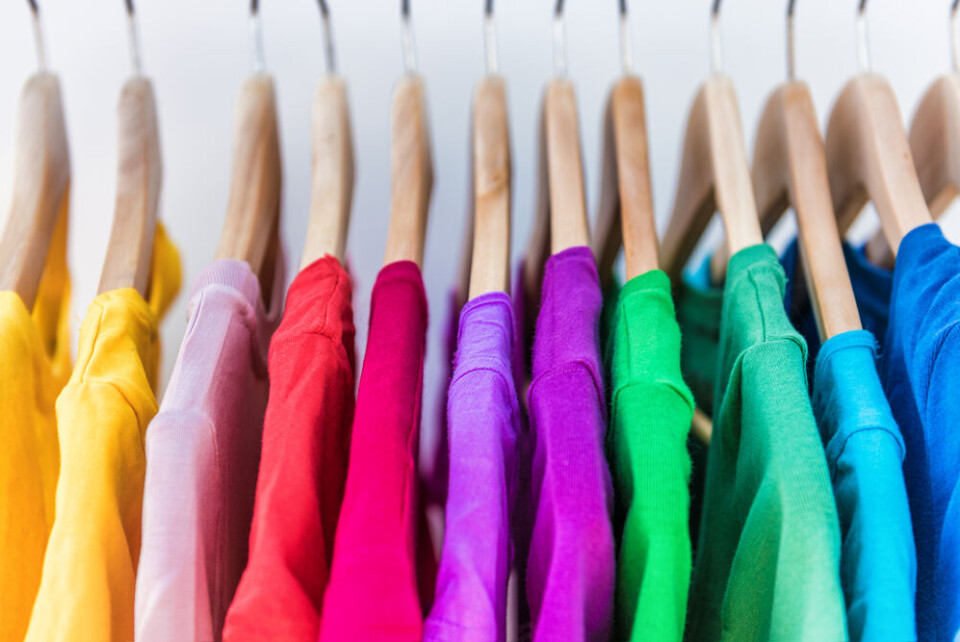-
Easter Monday in France: what shops can you expect to be open?
Some supermarkets will be open but not all
-
French boulangeries demand right for staff to work on May 1 so they can open
Artisan bakery owners can work but employees cannot, while certain industrial bakeries are allowed to remain open with workers
-
Online ‘anti-waste’ supermarket offers deals on everyday items in France - we test it
Discounts of 10% to 50% available on brand products
French clothes shops launch rental schemes: how do they work?
The schemes are touted as an alternative to fast fashion and are no longer restricted to luxury brands but now include H&M and Kiabi

Increasing numbers of clothes shops in France are running rental schemes to help customers face the rising cost of living - and to be better for the environment.
Brands currently operating such a scheme include H&M, Maje, Kiabi, and Gémo. They have joined the rising trend of renting clothes and accessories for a much lower price than it would cost to buy them new.
Often the brands available are luxury items, which the renter could not usually afford to buy. Instead, they rent them for a short time - for example, for a specific event - and then return them in good condition.
But increasingly, brands are renting out lower-cost items as an alternative to ‘fast fashion’ (when people buy a low-cost new outfit for an event and then throw it away). This saves more and is better for the environment, while still allowing people to wear different outfits and new trends.
“Our competitors are not Chanel or Balenciaga, but rather the brands that sell a dress for €150, that people buy to wear just once and then discard,” said Naïma Cardi, the founder of Une robe un soir (‘One Dress, One Night’), a luxury and mid-range clothing rental company founded in 2016, to Le Point.
How does it work?
In the case of Une robe un soir, it offers a subscription, and customers can also rent items on a one-off basis. Men and women can use the online service, and have their items posted to them in a few days.
A typical rental period is from four days to a month. The items are sent with a prepaid addressed return envelope or bag that the customer can use to send their pieces back at the end of the term. They do not have to wash or iron them before returning, but the items must be in good condition.
One user, Fatinia El Shekshaky, has been a subscriber for five years. She said: “It is a way to change your wardrobe every month at low prices. I had the annoying tendency to buy compulsively, without thinking.
“This subscription allows me to manage my wallet and wear clothes that would not be affordable otherwise. The eco-friendly aspect also appealed to me, and it is practical because everything is sent to my home address.”
Another user, an entrepreneur, said: “I don’t have time to go shopping, but I cannot always have the same dress in every photo [at every event]. This service is fast and efficient, so I can always wear new pieces and keep up with the latest trends without wasting a lot of time or money.”
Other brands have similar options.
What happens to the pieces when they wear out?
Une robe un soir aims to rent each piece 60 times before donating it to charity.
“We don't throw anything away,” said Ms Cardi. “Specialised dressmakers and cleaners work to maintain the dresses so that they are always in perfect condition. If we have any doubts, we take it out of the rental circuit and send it to the second-hand shop.”
Ms Cardi also claims that the carbon emissions created by the posting of each piece is small compared to the equivalent cost of producing the same number of new items.
Larger brands
Larger companies are now following the trend.
Kiabi has been trialling a rental service for over a year in three of its shops, with subscription packages from €19 to €49 per month. Customers can choose between 5 and 20 items to hire, and renew whenever they like.
With 300 customers having signed up to the trial so far, Kiabi is so far not hiring out items more than once, but instead sending the clothes to second-hand collectors after one hire. To make the scheme more sustainable, it would need to hire the pieces several times.
Also trialling the system is Swedish brand H&M, which has been offering subscriptions for its ‘capsule collections’, created in partnership with designers. Customers can also ask a stylist for advice.
Limited-time items
As well as party or ‘one night’ outfits, brands are increasingly offering clothes to women who will only use them for a short time, such as maternity outfits or clothes that make it easier to breastfeed.
“These are items that are only used for a limited period of time,” said Adélaïde Vallée, Kiabi hire project manager. “We are also testing the rental of premium children's clothing for ceremonies and events. So far, it has been pretty successful, and people are really coming on board.”
Other ‘limited time’ items include people who are having surgery and may need more accommodating clothes for a short period while they recover, or people having bariatric procedures who are anticipating needing clothes in a wide range of sizes for a relatively short time.
“It is a logical step,” said Ms Vallée. “[These customers] know that their body shape is going to change and that they will not need to keep their clothes for long.”
Related articles
French group Auchan tests sale of second-hand clothes
When is the best time to shop for deals in France?
Three little-known French websites to sell unwanted old clothes
























